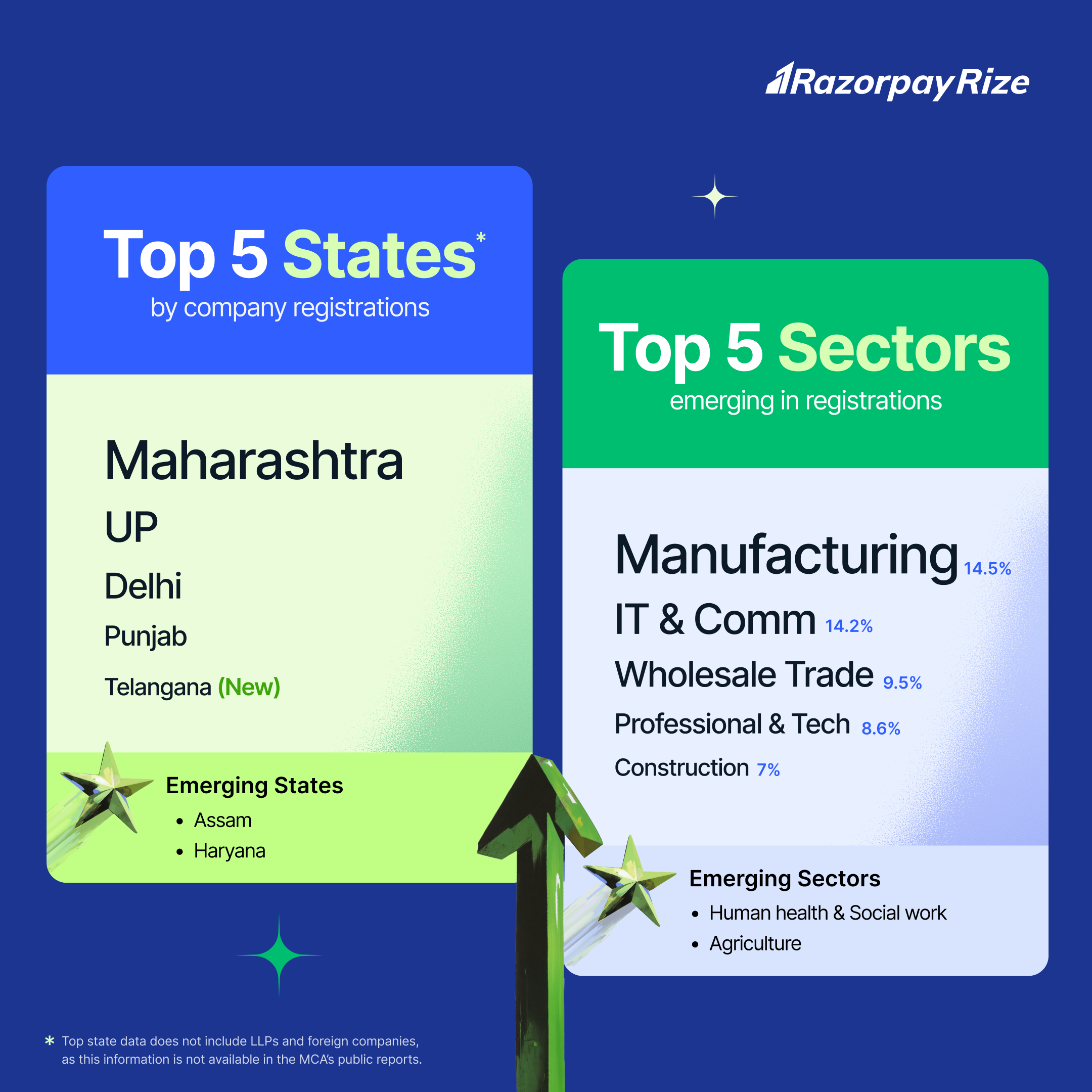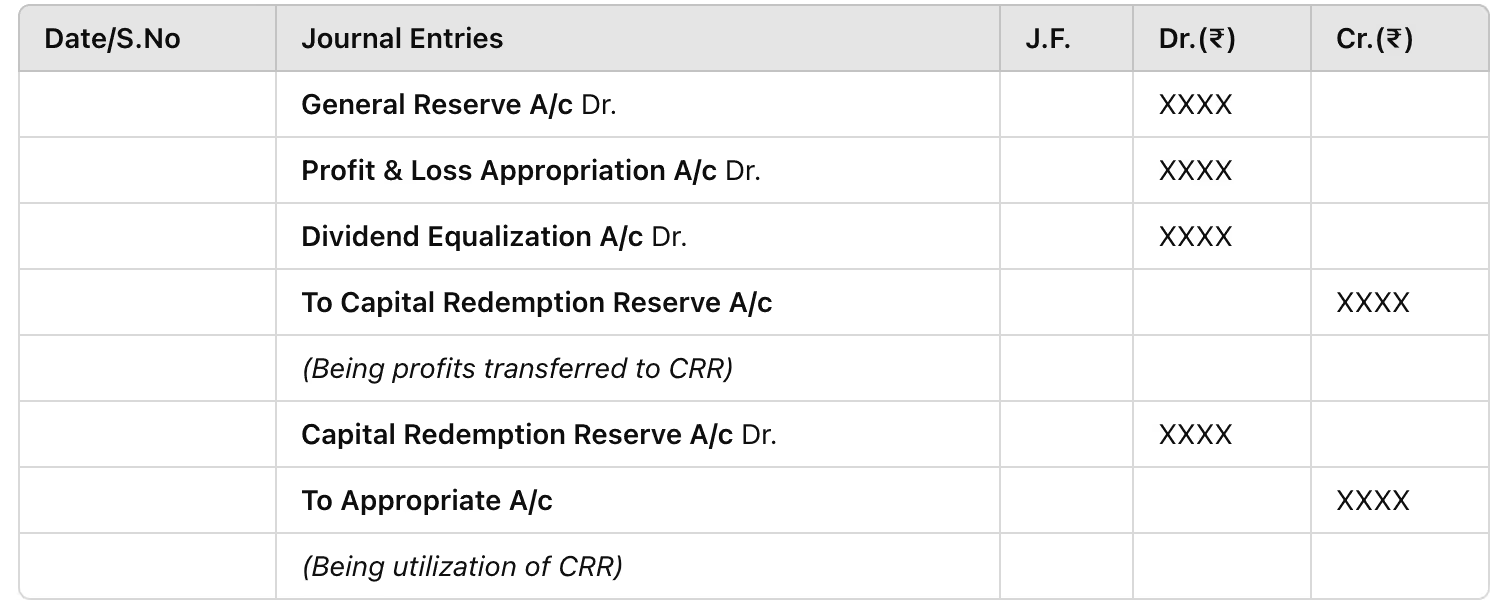Starting up in India often begins with one small but mighty step: registering your company. It’s the official “Day 1” for every dreamer-turned-founder.
That’s exactly what we track with What’s India Building Next, an initiative by Razorpay Rize. Each month, we break down where new businesses are being born, the sectors founders are betting on, and the trends shaping India’s startup wave.
Here's the August edition.
Table of Contents
India’s startup story is being written every single day. And in August alone, 24,898 new companies and LLPs were registered.
.png)
Which Business Structures Founders Chose This August?
And if you’re curious to know what kinds of businesses are getting registered- from Private Limited Companies to LLPs and beyond—this section breaks it down for you. Here’s a closer look at the different business structures that founders chose this August.
.png)
Top States & Sectors Leading Company Registrations
Now, let’s take a look at the leading states driving registrations this August. Some of the names on the list might feel familiar, but a few are sure to surprise you. And what’s even more exciting, emerging states like Assam and Haryana are keeping the startup spirit alive, proving that entrepreneurship in India is no longer confined to just the usual hubs.
- Maharashtra
- Uttar Pradesh
- Delhi
- Punjab
- Telangana
While states set the stage, these sectors stole the spotlight this August. Leading the way were Manufacturing (14.5%), IT & Communication (14.2%), Wholesale Trade (9.5%), Professional & Technical Services (8.6%), and Construction (7.0%).
But beyond these dominant sectors, emerging areas are starting to make their mark. Human Health & Social Work and Agriculture, each accounting for 0.3% of registrations, may be small in numbers today, yet they signal early-stage growth opportunities and innovation potential for founders looking to tap into these underserved spaces.

And behind every new registration, there’s a digital system quietly supporting this entrepreneurial momentum. Do you know what that digital platform is?
India’s journey to simplify entrepreneurship began long before these trends emerged. MCA21, the portal that founders rely on today for registering companies and managing post-registration compliances, was launched way back in 2006, making it one of the country’s first major e-governance initiatives. From facilitating registrations to supporting compliance, MCA21 has been at the heart of India’s growing startup ecosystem for nearly two decades.
Conclusion
As we close this August edition, one thing stands out: India’s startup ecosystem is buzzing with energy and constantly evolving. For founders and investors, these trends show where opportunities are cropping up. And, how every registration, every new idea, and every emerging sector is contributing to the larger story of a nation increasingly defined by its startups.
Private Limited Company
(Pvt. Ltd.)
- Service-based businesses
- Businesses looking to issue shares
- Businesses seeking investment through equity-based funding
Limited Liability Partnership
(LLP)
- Professional services
- Firms seeking any capital contribution from Partners
- Firms sharing resources with limited liability
One Person Company
(OPC)
- Freelancers, Small-scale businesses
- Businesses looking for minimal compliance
- Businesses looking for single-ownership
Private Limited Company
(Pvt. Ltd.)
- Service-based businesses
- Businesses looking to issue shares
- Businesses seeking investment through equity-based funding
One Person Company
(OPC)
- Freelancers, Small-scale businesses
- Businesses looking for minimal compliance
- Businesses looking for single-ownership
Private Limited Company
(Pvt. Ltd.)
- Service-based businesses
- Businesses looking to issue shares
- Businesses seeking investment through equity-based funding
Limited Liability Partnership
(LLP)
- Professional services
- Firms seeking any capital contribution from Partners
- Firms sharing resources with limited liability

















